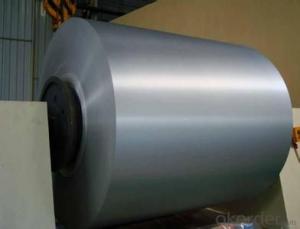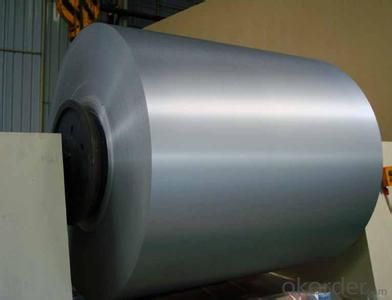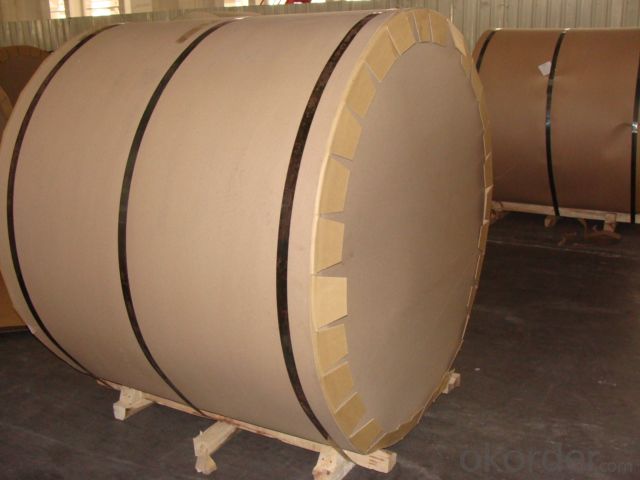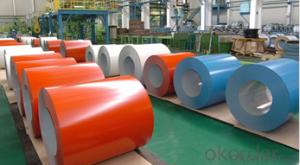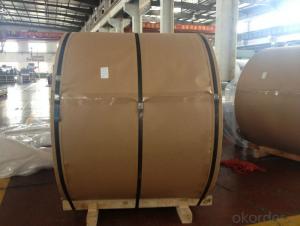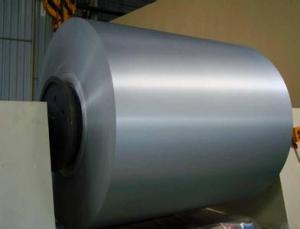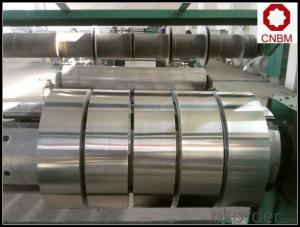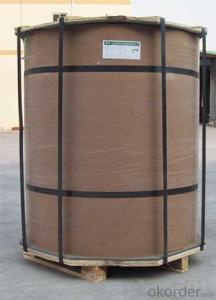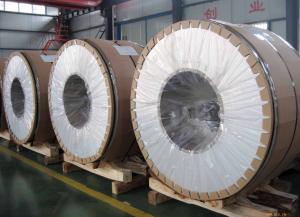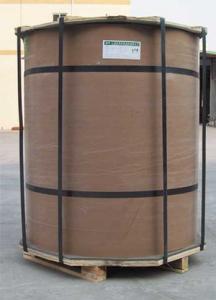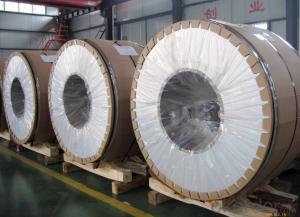5083 Mill-Finished Aluminum Coils 6xxx
- Loading Port:
- China Main Port
- Payment Terms:
- TT or LC
- Min Order Qty:
- 8 m.t.
- Supply Capability:
- 100000 m.t./month
OKorder Service Pledge
OKorder Financial Service
You Might Also Like
1.Structure of Mill-finished Aluminum Coils 6XXX Description
Mill-finished Aluminum Coils 6XXX has great ductility, heat conductivity, anti-corrosion and moisture resistance properties. We pay attention to the quality that it is free from Oil Stain, Dent, Inclusion, Scratches, Stain, Oxide Dicoloration, Breaks
Mill-finished Aluminum Coils 6XXX is widely used for PP cap stock, hot rolled thick plate, PS base plate, the traffic sign ,air-conditioner heat and exchangers, food container.
2.Main Features of Mill-finished Aluminum Coils 6XXX
• competitive price
• Reasonable and stable chemical composition
• Accurate tolerance
3.Mill-finished Aluminum Coils 6XXX Images
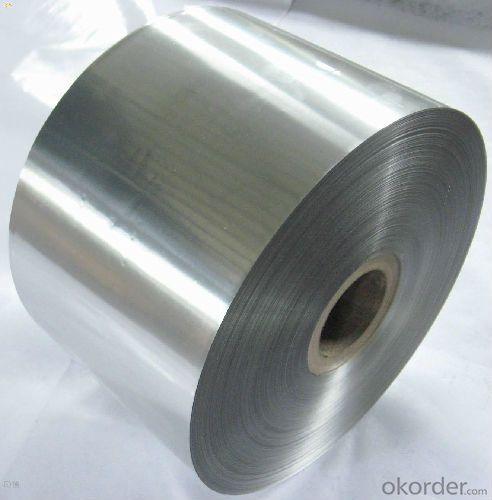
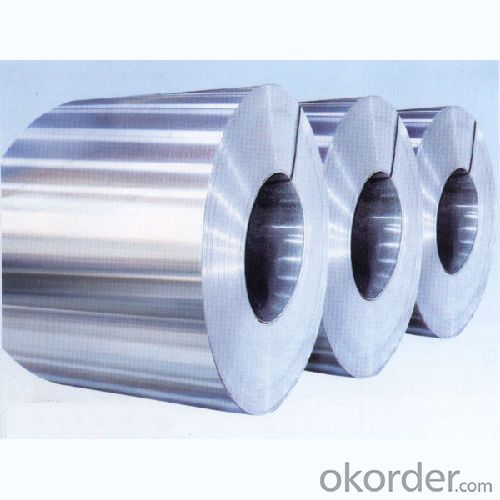
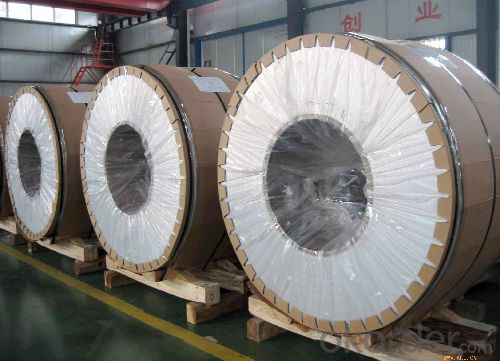
4.Mill-finished Aluminum Coils 6XXX Specification
Alloy | AA6xxx (AA6061 etc) |
Temper | T6 |
Thickness | 0.2mm -- 100mm |
Width | 30mm -- 1700mm |
Standard | GB/T 3880-2006, EN etc |
5. FAQ of Mill-finished Aluminum Coils 6XXX
A.How to guarantee the quality?
We can arrange a third party to test Mill-finished Aluminum Coils 6XXX. Before the shipment, we will test the products to ensure the quality is good.
B.When will you deliver the products?
The products will be delivered within 35 days after receiving original L/C or advanced payment.
C. Where have you exported this product?
It is exported to Africa, Middle East Asia and so on.
- Q: Are there any limitations on the coil flatness of aluminum coils?
- Aluminum coils, like other metal coils, have limitations on their flatness. The flatness of a coil refers to the extent to which its surface deviates from being completely flat. The American Society for Testing and Materials (ASTM) has set standards for measuring and evaluating the flatness of metal coils, including aluminum coils. These standards provide guidance for manufacturers, suppliers, and customers in determining the acceptable level of flatness for a particular application. The acceptable flatness of aluminum coils can vary depending on factors such as coil thickness, aluminum grade, and intended use. Thinner coils generally have stricter flatness requirements than thicker ones due to their greater susceptibility to distortion and waviness. Coil manufacturers employ various techniques, such as tension leveling, roller leveling, and corrective leveling, to control and improve flatness. These processes help to minimize or eliminate any deviations in flatness that may occur during coil manufacturing or processing. It is important to understand that achieving perfect flatness in aluminum coils is not always possible due to the inherent properties of the metal. Aluminum tends to exhibit some degree of natural springback, which can result in slight variations in flatness. However, these variations typically fall within acceptable tolerances for most applications. Ultimately, the limitations on the flatness of aluminum coils depend on the specific requirements of the customer or industry. Effective communication and clear establishment of flatness specifications between manufacturers and suppliers are crucial to ensuring that the coils meet the desired quality standards.
- Q: How are aluminum coils used in the production of transportation vehicles?
- Aluminum coils play a crucial role in the production of transportation vehicles, especially automobiles and aircraft. These coils are typically made from high-quality aluminum alloys due to their lightweight nature, excellent strength-to-weight ratio, and corrosion resistance characteristics. In automobile manufacturing, aluminum coils are primarily used in the construction of vehicle bodies, including the frame, doors, hoods, and trunk lids. The lightweight nature of aluminum allows for reduced fuel consumption and improved overall energy efficiency, making it a preferred choice for vehicle manufacturers aiming to meet stringent environmental regulations and enhance fuel economy. Aluminum coils are also utilized in the production of aircraft, where weight reduction is of utmost importance to ensure optimum flight performance. By incorporating aluminum coils in key components such as fuselages, wings, and engine parts, aircraft manufacturers can achieve significant weight savings while maintaining structural integrity and durability. The use of aluminum coils in transportation vehicles also contributes to improved safety standards. Aluminum's exceptional crash energy absorption capabilities make it an ideal material for manufacturing impact-absorbing structures, such as bumpers and crash boxes in automobiles, providing enhanced protection to passengers during collisions. Furthermore, aluminum coils offer excellent heat dissipation properties, reducing the risk of overheating in engines and other critical vehicle systems. This thermal management capability is particularly beneficial in high-performance vehicles, where efficient cooling is paramount to maintain optimal operating conditions. In summary, aluminum coils are extensively used in the production of transportation vehicles to leverage their lightweight, strong, corrosion-resistant, and thermally conductive properties. By incorporating aluminum coils in vehicle manufacturing, automobile and aircraft industries can achieve weight reduction, improved fuel efficiency, enhanced safety, and superior performance, thereby meeting evolving market demands and sustainability goals.
- Q: What certifications might be necessary for the production, sale, or use of aluminum coils?
- <p>Aluminum coils may require various certifications depending on their intended use and the standards set by different countries or industries. Common certifications include ISO 9001 for quality management systems, ISO 14001 for environmental management, and specific industry standards such as ASTM or EN standards for material properties and safety. For construction or automotive applications, additional certifications like CE marking in Europe or DOT certification in the US may be necessary. It's crucial to consult with industry standards and regulatory bodies to determine the exact certifications required for a specific application.</p>
- Q: This question asks for the cost of an aluminum coil, which can vary based on factors such as weight, quality, and market conditions.
- <p>The cost of an aluminum coil can vary significantly based on its weight, grade, and current market prices. As of my last update, the price per pound can range from about $0.30 to $1.50, but this is subject to change with market fluctuations. For precise pricing, it's best to check with a supplier or on a commodity exchange, as aluminum prices are dynamic and influenced by global supply and demand.</p>
- Q: Can aluminum coils be used for HVAC condenser coils?
- Yes, aluminum coils can be used for HVAC condenser coils. Aluminum is a popular choice for condenser coils due to its excellent heat transfer properties, durability, and resistance to corrosion. Additionally, aluminum coils are lightweight, making them easier to install and transport.
- Q: What is the typical fatigue strength of aluminum coils?
- The typical fatigue strength of aluminum coils can vary depending on various factors such as the alloy composition, heat treatment, manufacturing process, and the specific application. However, aluminum is generally known for its relatively low fatigue strength compared to other metals, such as steel. Aluminum coils typically exhibit a fatigue strength that ranges between 30% to 50% of their ultimate tensile strength (UTS). This means that the fatigue limit or endurance limit of aluminum coils is usually below half of their maximum strength. It is important to note that aluminum's fatigue strength can also be influenced by other factors, including the presence of surface defects, stress concentrations, and environmental conditions such as temperature and humidity. These factors can further reduce the fatigue strength of aluminum coils. Therefore, when designing and using aluminum coils in applications where fatigue is a concern, it is crucial to consider the specific alloy and processing conditions, as well as implementing appropriate design practices and maintenance procedures to mitigate the risk of fatigue failure.
- Q: How are aluminum coils protected against scratches and damage?
- Aluminum coils are protected against scratches and damage through several methods. One common method is the application of a protective coating or film on the surface of the coil. This coating serves as a barrier between the coil and any potential sources of damage, such as abrasion or impact. Another way to protect aluminum coils is by using a process called coil coating. In this process, the coil is cleaned, pre-treated, and coated with a layer of protective paint or resin. This coating not only enhances the appearance of the coil but also provides a protective layer against scratches and other forms of damage. Additionally, during the manufacturing and handling process, aluminum coils are often wrapped or packaged in materials that provide cushioning and protection. This helps to prevent any scratches or dents that may occur during transportation or storage. Lastly, proper handling and storage practices play a crucial role in protecting aluminum coils against scratches and damage. It is important to handle the coils with care, using appropriate equipment and techniques to minimize the risk of scratching or other forms of damage. Storing the coils in a clean and dry environment can also help prevent any potential damage. Overall, a combination of protective coatings, coil coating processes, proper handling, and storage practices ensures that aluminum coils are well-protected against scratches and damage, maintaining their quality and appearance.
- Q: Can aluminum coils be used in automotive suspension systems?
- Yes, aluminum coils can be used in automotive suspension systems. Aluminum coils are lightweight, durable, and have excellent corrosion resistance, making them suitable for use in suspension systems. They provide better handling, improved ride quality, and enhance fuel efficiency in vehicles.
- Q: Are aluminum coils suitable for roofing?
- Yes, aluminum coils are suitable for roofing. Aluminum is a lightweight and durable material that is resistant to corrosion, making it an excellent choice for roofing applications. It is also highly reflective, which can help to reduce energy costs by keeping the building cooler. Additionally, aluminum coils are easy to install and maintain, making them a popular option for both residential and commercial roofing projects.
- Q: Does anyone know of any men's deodorant that doesn't contain aluminum? It has to be strong, as I do sweat a lot.
- Go to old spice there the best
Send your message to us
5083 Mill-Finished Aluminum Coils 6xxx
- Loading Port:
- China Main Port
- Payment Terms:
- TT or LC
- Min Order Qty:
- 8 m.t.
- Supply Capability:
- 100000 m.t./month
OKorder Service Pledge
OKorder Financial Service
Similar products
Hot products
Hot Searches
Related keywords
